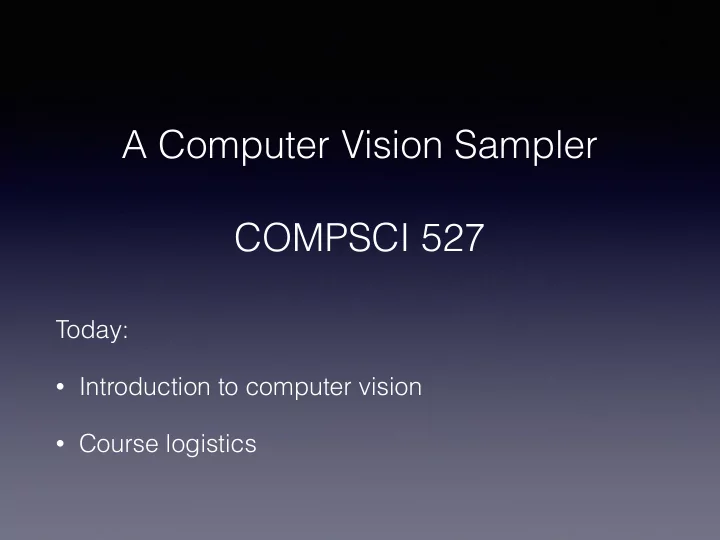

A Computer Vision Sampler COMPSCI 527 Today: • Introduction to computer vision • Course logistics
Sameer Agarwal et al CACM 2011
Benfold and Reid CVPR 2011
Apple Computers 2010
Tian Lan et al ICCV 2013
[slide idea by Fei-Fei Li]
• Detect: Is there one or more instance of x in this image? • Localize: Where are the instances? • Segment: Where are the boundaries of each instance? • Track: How is this instance moving from one image to the next? • Recognize = classify: What is this? • Reconstruct: Given two or more 2D images of a scene, compute a 3D model of it
History of Recognition feature detection or "person" recognition extraction x [Picture from www.driverseducationusa.com] • Up to mid Nineties: Feature extraction and recognition algorithm engineered by hand • No data needed, intuition, lots of special-case programming • Mid Nineties to circa 2010: Feature extraction by hand, and recognition algorithm with machine learning • With carefully designed features, recognition can learned from modest-size training sets • Last decade: Entire pipeline by machine learning (deep convolutional neural networks) • Massive amounts of data needed to train the system
History of Tracking ( Δ x, Δ y) matching feature "person A" detection extraction x feature "person A" detection extraction x • Up to circa 2000: Search for most similar window in second frame • Last decade: repeatedly detect object of interest through recognition
History of 3D Reconstruction • Still mostly geometry: Model the image formation process, 3D -> 2D: images = f(3D shape, camera position) • Solve for 3D shape, camera position, given images, 2D -> 3D • Starting to see first deep neural networks
Recommend
More recommend